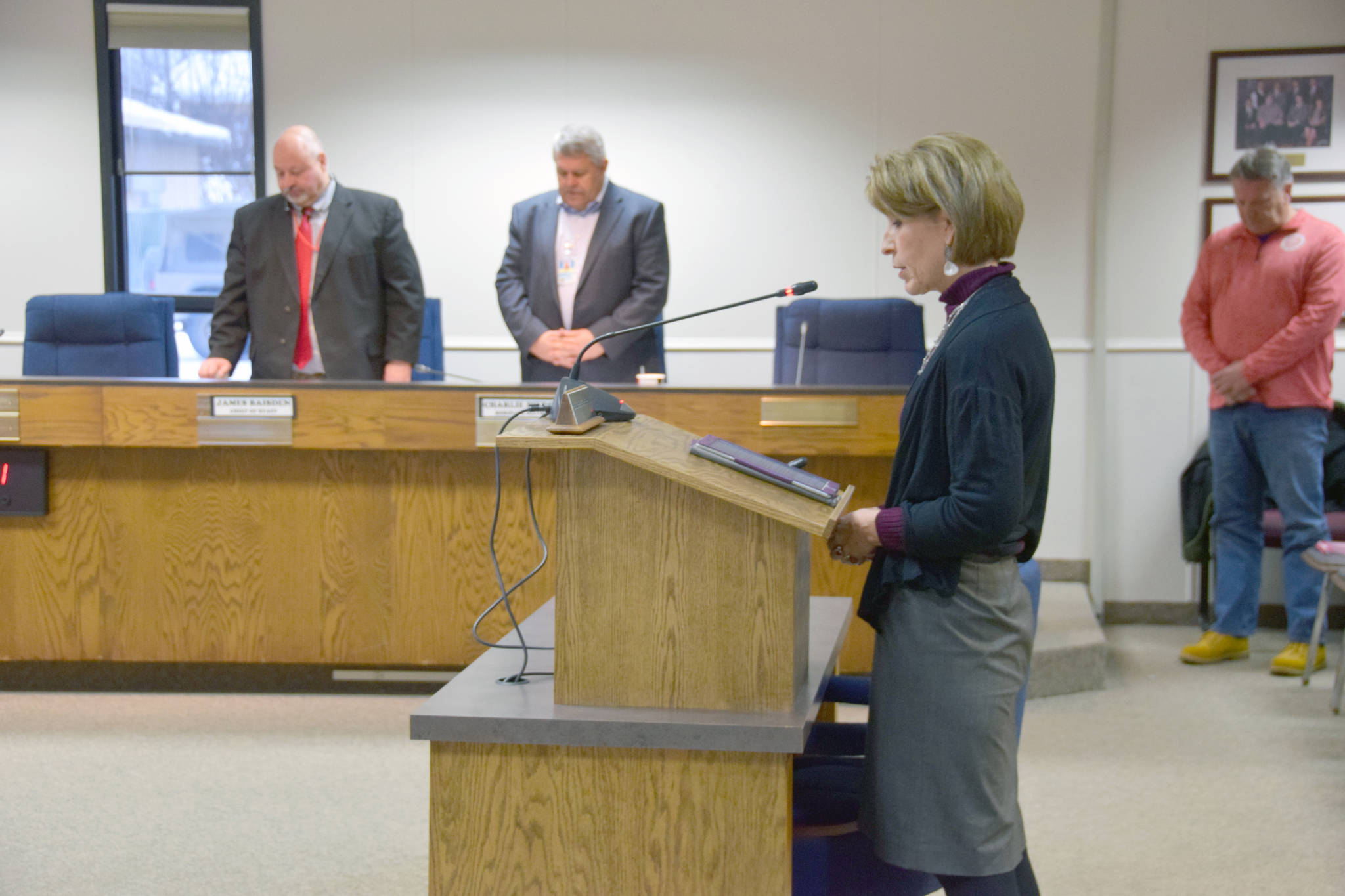An ordinance eliminating invocations during Kenai Peninsula Borough Assembly meetings is scheduled for a vote at Tuesday’s meeting, however, the ordinance’s sponsor is likely to withdraw the item completely.
Assembly member Willy Dunne sponsored an ordinance that would end the practice of offering of invocations before the beginning of assembly meetings. The ordinance would put that question to the residents for a vote.
“It was my intention when I first proposed the ordinance to have it repealed based on voter approval,” Dunne said. “I later found out it would only be an advisory vote.”
The assembly has the authority to amend its meeting agenda without voter approval. Dunne said he had concerns about the advisory vote, which is not binding.
The ordinance was introduced just weeks after a resident and member of the Satanic Temple, Iris Fontana, provided an invocation at the June 18 meeting, which prompted walkouts from borough officials and a protest outside the borough building.
In a June 20 memo from Dunne to the assembly, he said recent invocations have resulted in controversial and divisive actions in the community.
“Borough assembly policy states that invocations are presented to meet the spiritual needs of assembly members,” the memo reads. “However, recent invocations have failed to accomplish that.”
In the memo, Dunne says removing invocations will save the borough taxpayers’ money and reduce divisiveness in the community.
“It is expected that assembly members can find ways to have their spiritual needs met outside of public meetings,” Dunne said in the memo.
The borough’s invocation policy has sparked yearslong controversy.
In October, the borough lost a lawsuit against plaintiffs represented by the American Civil Liberties Union of Alaska in a fight over its invocation policy, which allowed certain groups and individuals to offer an invocation at the beginning of each meeting. The plaintiffs, Lance Hunt, an atheist, Fontana and Elise Boyer, a member of the Jewish community in Homer, all applied to give invocations after the policy was established in 2016. All three were denied because they didn’t belong to official organizations with an established presence on the peninsula. They sued and the ACLU Alaska agreed to represent them.
Anchorage Superior Court Judge Andrew Peterson ruled the invocation policy violated the Alaska Constitution’s establishment clause, which is a mandate banning government from establishing an official religion or the favoring of one belief over another. Article 1, Section 4 of the constitution provides that “no law shall be made respecting an establishment of religion.”
In November, the assembly voted against appealing the Superior Court decision and passed an updated invocation policy allowing more people the ability to give invocations at assembly meetings.

